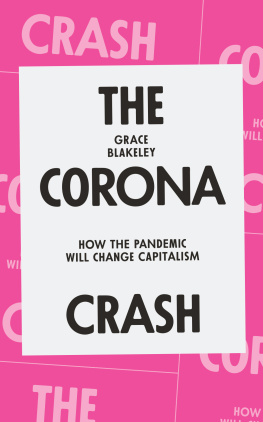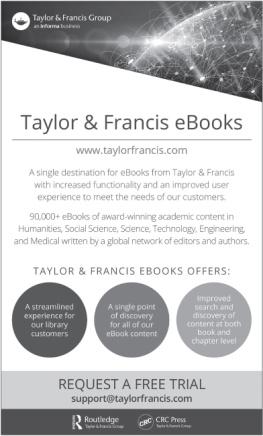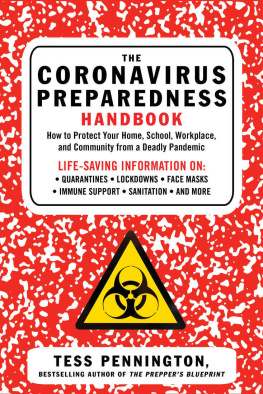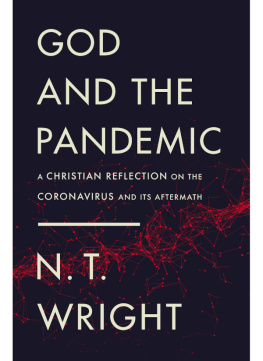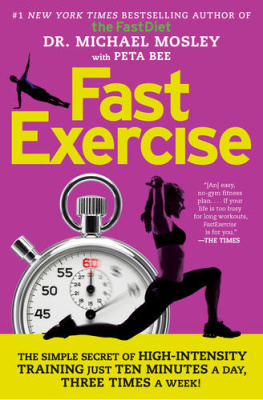Swapneil Parikh - The Coronavirus: What you Need to Know about the Global Pandemic
Here you can read online Swapneil Parikh - The Coronavirus: What you Need to Know about the Global Pandemic full text of the book (entire story) in english for free. Download pdf and epub, get meaning, cover and reviews about this ebook. year: 2020, publisher: Penguin Random House India Private Limited, genre: Politics. Description of the work, (preface) as well as reviews are available. Best literature library LitArk.com created for fans of good reading and offers a wide selection of genres:
Romance novel
Science fiction
Adventure
Detective
Science
History
Home and family
Prose
Art
Politics
Computer
Non-fiction
Religion
Business
Children
Humor
Choose a favorite category and find really read worthwhile books. Enjoy immersion in the world of imagination, feel the emotions of the characters or learn something new for yourself, make an fascinating discovery.

- Book:The Coronavirus: What you Need to Know about the Global Pandemic
- Author:
- Publisher:Penguin Random House India Private Limited
- Genre:
- Year:2020
- Rating:3 / 5
- Favourites:Add to favourites
- Your mark:
- 60
- 1
- 2
- 3
- 4
- 5
The Coronavirus: What you Need to Know about the Global Pandemic: summary, description and annotation
We offer to read an annotation, description, summary or preface (depends on what the author of the book "The Coronavirus: What you Need to Know about the Global Pandemic" wrote himself). If you haven't found the necessary information about the book — write in the comments, we will try to find it.
The Coronavirus: What you Need to Know about the Global Pandemic — read online for free the complete book (whole text) full work
Below is the text of the book, divided by pages. System saving the place of the last page read, allows you to conveniently read the book "The Coronavirus: What you Need to Know about the Global Pandemic" online for free, without having to search again every time where you left off. Put a bookmark, and you can go to the page where you finished reading at any time.
Font size:
Interval:
Bookmark:


EBURY PRESS
The Coronavirus
Dr Swapneil Parikh is a practising physician in Mumbai and the co-founder of a healthcare start-up. His practice focuses on reversing lifestyle diseases like diabetes and obesity. He is passionate about infectious diseases, medical literature and the future of technology in medicine.
Maherra Desai is a clinical psychologist and medical researcher. She has excelled in academics and psychometrics. She is visiting faculty, department of psychology, at the S.N.D.T. Womens University, Mumbai, and the site manager of clinical research at the Jaslok Hospital and Research Centre, Mumbai. She is passionate about research, fitness, travel and voluntary work.
Dr Rajesh M. Parikh is the director of medical research and honorary neuropsychiatrist at the Jaslok Hospital and Research Centre, Mumbai. He trained and taught at the Johns Hopkins Medical Institutions in the US and at the King Edward VII Memorial Hospital in Mumbai. He is Indias first and leading neuropsychiatrist. He has published research papers in leading international journals and is passionate about poetry, painting, photography, philosophy, linguistics, marine fish and aviation. He has cumulatively won over 200 awards in academics and in his diverse activities.
What you Need to Know about the Global Pandemic

PENGUIN BOOKS
For Dr Li Wenliang, Dr Carlo Urbani and those who, like them, risk their lives in the service of humanity

We owe an enormous collective debt to the courageous, conscientious healthcare workers at the forefront of the battle to contain COVID-19. As of 2 April, over 20,000 healthcare workers around the world have been infected by the virus. Some have sacrificed their lives in the process and many continue to work, despite the attendant risks. Putting together this book, insulated as we are, thousands of kilometres from the epicentre of this disaster, is much easier. Dr Li Wenliang, Dr Carlo Urbani and others like him are the heroes of this story.
The three of us wish to thank our families for their understanding and support:
Swapneil to his parents, Firuza and Rajesh, his wife, Meenal, his siblings, Nikita and Manish, and his dog, Akira.
Maherra to her parents, Qureish and Nazaqat, her husband, Abhishaik, her mother-in-law, Amita, her mentor, Dr Rajesh Parikh, and all her family and friends.
Rajesh to those Swapneil thanked and also to the CEO, Jitendra Haryan, the COO, George Alex, and managing trustee, Kanta Masand, of the Jaslok Hospital and Research Centre for their support during the writing of this book.
Nita and Mukesh Ambani, as always, have been curious and supportive.
These medical journals have been significant sources of information not only for this book but also during our professional development: The Lancet, the New England Journal of Medicine (NEJM), Nature and the Journal of the American Medical Association (JAMA).
Thank you, Munira Kapadia for your tireless and diligent research and proofreading. Anushka Joshi, Arun and Mrunalini Katiyar, Malavika Sangghavi, Parag Amladi, Sandeep Kaur and Simrita Ahluwalia, and Firuza Parikh meticulously went over the manuscript and gave valuable suggestions. Anupama and Vidhu Vinod Chopra, Raju Hirani, Shobhaa De and Chayya Momayya angelically appeared to propel the book.
Milan Vaishnav, director, South Asia Programme, Carnegie Endowment for International Peace, and Ajith Pillai, veteran journalist and author, reviewed the chapter The Politics of Disease as did Amitabha Bhattacharya, former principal adviser in the Planning Commission, Government of India, for the chapter The Economics of COVID-19. Thank you, Sheela Raval and Archana Massai, for connecting us with them.
We would like to thank the Penguin team that worked round the clock to meet the deadline. Shivani, Shantanu, Preeti, Sanjeeta, Khyati, Vijesh, Sameer and Devangana, you are unforgettable.
Finally, Milee Ashwarya got us started and nudged us along, overseeing all aspects with customary diligence and editorial vision. Thanks.

India celebrated its seventy-first Republic Day on 26 January 2020. In New Delhi, the parade commenced at 9.30 a.m. with the President hoisting the flag to a twenty-one-gun salute. The army, navy and air force displayed their military might, followed by motorcycle daredevilry and twenty-two floats of various states. Over 100,000 people were in attendance.
Meanwhile, 3500 miles away, the Chinese army was engaged in a brutal display of a different kind. The effective lockdown of Wuhan, a city of 11 million people, was being enforced at incredible speed. All public transportation including railways, roads, flights and ferry services were suspended. Residents could not leave the city without permission, although about 300,000 had escaped in the eight-hour window before the notice became effective. Within a day, twelve more neighbouring cities were on lockdown, bringing the quarantined population to over 50 million. It was the largest quarantine in human history.
Approximately midway between New Delhi and Wuhan, my friend Ram Ranga, former mental health director at Delaware, and I were drifting in the Ganga delta in search of the elusive Sundarbans tiger. We were deep in conversation about 2019-nCoV, as it was then known. What if a single person in Indias Republic Day parade was infected with the virus? Among the attendees was the consular staff from China and 140 other countries. I was also concerned about the Jaslok Hospital and Research Centre, a world-class 300-bed facility, and my workplace in Mumbai for over thirty years. I knew, from the 200203 SARS and the 2012 MERS outbreaks, that healthcare workers were among those worst hit by the deadly coronaviruses. I was concerned for the hospitals other patients, already weakened from disease, and also for my fellow healthcare workers. Although Jaslok was well equipped, there was considerable work to be done. We needed to have a protocol for the pandemic unleashing its fury, like the hurricanes that periodically batter the Sundarbans.
Internet connectivity being intermittent, we followed the updates as best we could. Given the documented unreliability of Chinese reports during the 200203 SARS outbreak, the World Health Organization (WHO), the United States Centers for Disease Control and Prevention (US CDC) and The Lancets Coronavirus Resource Centre were credible resources. The information was as chilling as the wind that cut through the boat.
I returned to Mumbai on 28 January, and commenced work with my colleagues to put together an eBulletin on the virus and to create a protocol for dealing with the disease.
While putting in eighteen-hour workdays, I got a call from the astute Milee Ashwarya, publisher, Penguin Random House India. Our conversation about the new coronavirus covered its virology, medical response and the political and economic implications for China and the world. The conversation seeded the idea for this book. As I was preoccupied with the protocol, I requested two co-authors, my son Swapneil and my colleague Maherra Desai. She granted my request and commissioned this book, giving us two weeks to prepare a manuscript; eventually, we needed eight.
Font size:
Interval:
Bookmark:
Similar books «The Coronavirus: What you Need to Know about the Global Pandemic»
Look at similar books to The Coronavirus: What you Need to Know about the Global Pandemic. We have selected literature similar in name and meaning in the hope of providing readers with more options to find new, interesting, not yet read works.
Discussion, reviews of the book The Coronavirus: What you Need to Know about the Global Pandemic and just readers' own opinions. Leave your comments, write what you think about the work, its meaning or the main characters. Specify what exactly you liked and what you didn't like, and why you think so.


